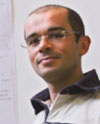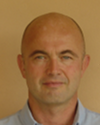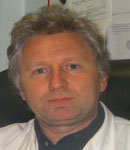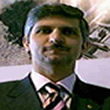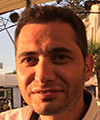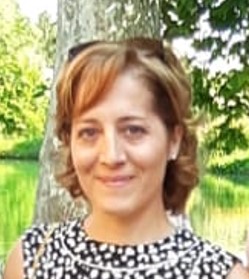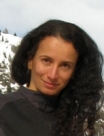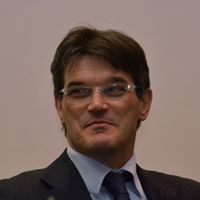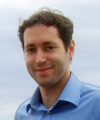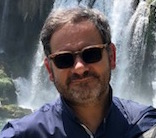Studying at the University of Verona
Here you can find information on the organisational aspects of the Programme, lecture timetables, learning activities and useful contact details for your time at the University, from enrolment to graduation.
Academic calendar
The academic calendar shows the deadlines and scheduled events that are relevant to students, teaching and technical-administrative staff of the University. Public holidays and University closures are also indicated. The academic year normally begins on 1 October each year and ends on 30 September of the following year.
Course calendar
The Academic Calendar sets out the degree programme lecture and exam timetables, as well as the relevant university closure dates..
| Period | From | To |
|---|---|---|
| I semestre | Oct 2, 2017 | Jan 26, 2018 |
| II semestre | Mar 5, 2018 | Jun 1, 2018 |
| Session | From | To |
|---|---|---|
| sessione invernale 2017/2018 - sessione straordinaria 2016/2017 | Jan 29, 2018 | Feb 28, 2018 |
| sessione estiva 2017/2018 | Jun 4, 2018 | Jul 6, 2018 |
| sessione autunnale 2017/2018 | Aug 27, 2018 | Sep 28, 2018 |
| Sessione invernale 2018/2019 - sessione straordinaria 2017/2018 | Jan 28, 2019 | Feb 28, 2019 |
| Session | From | To |
|---|---|---|
| sessione straordinaria 2016/2017 | Mar 19, 2018 | Apr 10, 2018 |
| sessione estiva 2017/2018 | Jul 9, 2018 | Jul 27, 2018 |
| sessione autunnale 2017/2018 | Oct 15, 2018 | Nov 5, 2018 |
| sessione straordinaria 2017/2018 | Mar 18, 2019 | Apr 5, 2019 |
Exam calendar
Exam dates and rounds are managed by the relevant Exercise Science Teaching and Student Services Unit.
To view all the exam sessions available, please use the Exam dashboard on ESSE3.
If you forgot your login details or have problems logging in, please contact the relevant IT HelpDesk, or check the login details recovery web page.
Should you have any doubts or questions, please check the Enrollment FAQs
Academic staff
 michele.andreaus@unitn.it
michele.andreaus@unitn.it
 manuela.basso@unitn.it
manuela.basso@unitn.it
 valentina.biino@univr.it
valentina.biino@univr.it
 stefano.biressi@unitn.it
stefano.biressi@unitn.it
 paolo.dellaquila@univr.it
paolo.dellaquila@univr.it
 caterina.pesci@unitn.it
caterina.pesci@unitn.it
 francescouguagliati@alice.it
francescouguagliati@alice.it
Study Plan
The Study Plan includes all modules, teaching and learning activities that each student will need to undertake during their time at the University.
Please select your Study Plan based on your enrollment year.
1° Year
| Modules | Credits | TAF | SSD |
|---|
2° Year activated in the A.Y. 2018/2019
| Modules | Credits | TAF | SSD |
|---|
One course to be chosen among the followingOne course to be chosen among the following| Modules | Credits | TAF | SSD |
|---|
| Modules | Credits | TAF | SSD |
|---|
One course to be chosen among the followingOne course to be chosen among the followingLegend | Type of training activity (TTA)
TAF (Type of Educational Activity) All courses and activities are classified into different types of educational activities, indicated by a letter.
Training methodology of soccer (2018/2019)
Teaching code
4S001088
Teacher
Coordinator
Credits
3
Language
Italian
Scientific Disciplinary Sector (SSD)
M-EDF/02 - SPORT SCIENCES AND METHODOLOGY
Period
II SEMESTRE dal Mar 4, 2019 al May 31, 2019.
Learning outcomes
The course aims to provide the foundation and theoretical - practical management training into its components with frontal lessons and practical sessions.
1. Provide the basic elements for the selection of sources of knowledge and guidelines to evidence based approach to training.
2. Description of the training methods and exercises for aerobic, anaerobic, strength and speed training.
3. Description of the test most widely used and validated.
4. Description of the methodology of monitoring of training load.
5. Organization of a training session.
6. Injury prevention.
ABILITY
1. Selection of sources of knowledge
2. Design and organise different training sessions
3. Design and organise different test sessions
4. Analysis of the test results and training monitoring
Program
Source of knowledge
Training process
1. Introduction and description of the training process
2. Indicators of training process
Warm-up
1. Theory: why and aims
2. With and with-out the ball
3. 11+, theory and practice
Aerobic training
1. Evidences on the aerobic training in soccer
2. Interval training in soccer
3. Intermittent training
4. Small sided games
5. Sprint training
Anaerobic training
1. Evidences on the anaerobic training in soccer
2. Methodology and exercises to train
Strength
1. Evidences on the strength training in soccer
2. Methodology and exercises to train
Testing
1. Validation process of the tests
2. Validity
3. Reliability
4. Responsiveness
5. Interpretability
6. Mognoni Test
7. Yo-Yo tests
8. RSA test
9. Jump test
10. Sprint test
Training load
1. Evidences on the training load in soccer
2. Measurement of the training load in soccer
3. Internal training load
4. External training load
5. Data management
Injury prevention
1. Evidences on the injury prevention
2. Epidemiology
Youth training
1. Theory
2. Practice
Examination Methods
Written questionnaire (quiz and open questions)
To participate in the exam, student must reach the 75% of the lesson’s attendance
Type D and Type F activities
| years | Modules | TAF | Teacher | |
|---|---|---|---|---|
| 1° | Anthropometry | D |
Carlo Zancanaro
(Coordinator)
|
|
| 1° | Biochemistry for sport | D |
Marta Palmieri
(Coordinator)
|
|
| 1° | Methodology of sport activities measures | D |
Luca Paolo Ardigo'
(Coordinator)
|
|
| 2° | Physiology of sport nutrition | D |
Silvia Pogliaghi
(Coordinator)
|
|
| years | Modules | TAF | Teacher | |
|---|---|---|---|---|
| 1° | Sports and drugs | D |
Roberto Leone
(Coordinator)
|
|
| 1° | Forensic medicine and social security | D |
Aldo Eliano Polettini
(Coordinator)
|
|
| 1° | Research methodology applied to sport | D |
Laurent Damien George Mourot
(Coordinator)
|
|
| 1° | Statistics applied to movement sciences | D |
Maria Elisabetta Zanolin
(Coordinator)
|
|
| 2° | Movement learning and outstanding sport people | D |
Paola Cesari
|
|
| 2° | Clinical biochemistry applied to sport activity | D |
Giuseppe Lippi
(Coordinator)
|
|
| 2° | Advanced nutrition for sports | D |
Silvia Pogliaghi
(Coordinator)
|
|
| 2° | Physiology of sport performance | D |
Enrico Tam
(Coordinator)
|
|
Career prospects
Module/Programme news
News for students
There you will find information, resources and services useful during your time at the University (Student’s exam record, your study plan on ESSE3, Distance Learning courses, university email account, office forms, administrative procedures, etc.). You can log into MyUnivr with your GIA login details: only in this way will you be able to receive notification of all the notices from your teachers and your secretariat via email and soon also via the Univr app.
Graduation
List of theses and work experience proposals
Student mentoring
Gestione carriere
Orario lezioni
L’orario delle lezioni comprende
Lezioni Frontali in aula
Esercitazioni e laboratori
Questi ultimi sono organizzati per gruppi dai singoli docenti responsabili dei corsi.
L'orario è pubblicato nel portale studenti
Modalità di frequenza
Vige l'obbligo di frequenza al 70% come specificato nel Regolamento di ogni singolo corso di laurea e laurea magistrale:
Ulteriori informazioni:
L'accesso alle pagine Moodle dei singoli insegnamenti è vincolato alla compilazione del piano di studi.
App Univr Lezioni, FAQ e guida all'utilizzo sono disponibili al seguente link: orario-lezioni-e-modalita-di-frequenza
Comunicati: Avvisi per studenti
Internships
Internships are aimed at enabling students to gain direct knowledge of the world of work and to acquire specific professional skills.
Internships are carried out under the responsibility of an individual lecturer, and can be carried out in professional firms, public administration bodies and companies recognised by the University of Verona.
Any CFU credits gained by doing internships will be recognised and recorded by the University in accordance with the relevant University regulations in force (Regolamento d’Ateneo per il riconoscimento dei crediti maturati negli stage universitari).
For further information on internships, please go to: https://www.univr.it/it/i-nostri-servizi/stage-e-tirocini.
Linguistic training CLA
Certificazione medica di idoneità
Riferimenti normativi principali: DM 24 aprile 2013 art. 3, GU 169 del 20-07-2013; Decreto del Ministro della Salute dell’8 agosto 2014 e s.m.i.
Per frequentare le attività dei corsi di Laurea e Laurea magistrale di Scienze motorie è obbligatorio presentare la certificazione medica di idoneità fisica per attività sportiva non agonistica. La certificazione è necessaria per accedere alle attività pratiche-esercitative e al tirocinio.
à COME OTTENERE LA CERTIFICAZIONE
La certificazione - riportante l’indicazione che è stato eseguito l’ECG a riposo - può essere rilasciata da:
- centri o servizi di medicina dello sport delle ASL (ora ATS) e delle aziende ospedaliere
- istituti della Federazione Medico Sportiva Italiana
- centri pubblici o privati autorizzati:
- dai medici di medicina generale di libera scelta, relativamente ai propri assistiti;
- dal medico specialista in medicina dello sport.
L’ECG a riposo deve essere ripetuto annualmente.
E’ ammesso anche il certificato medico di idoneità alla pratica sportiva agonistica, per chi ne fosse già in possesso.
à SCADENZA PER LA PRESENTAZIONE
La certificazione medica deve essere prodotta al momento dell'immatricolazione e, comunque, entro l’inizio delle lezioni alla Segreteria Corsi di Studio Scienze motorie. Spetta agli studenti rinnovarla annualmente alla scadenza - per ogni anno di iscrizione in corso o fuori corso. La Segreteria effettuerà periodicamente dei controlli sulla consegna dei certificati.
NOTA: Studenti immatricolati a seguito di SUBENTRO/RIPESCAGGIO/TRASFERIMENTO IN INGRESSO: se non è possibile rispettare la scadenza di presentazione del certificato sopra indicata, avvisare la Segreteria Corsi di Studio Scienze, scrivendo all’indirizzo certmed.scienzemotorie@ateneo.univr.it
à MODALITA’ DI CONSEGNA
La certificazione va inviata alla Segreteria Corsi di Studio Scienze motorie dalla propria e-mail istituzionale nome.cognome@studenti.univr.it all’indirizzo certmed.scienzemotorie@ateneo.univr.it.
Student login and resources
Competenze linguistiche
DOPO LA LAUREA TRIENNALE
Per proseguire gli studi in uno dei corsi di Laurea Magistrale dell'ambito delle Scienze motorie è necessario possedere competenze linguistiche almeno di livello B1 informatizzato (o superiore) specificamente di lingua inglese, poichè i corsi di studio di livello superiore prevedono nel proprio piano didattico la presenza di insegnamenti o di moduli impartiti dai docenti direttamente in inglese.
Inoltre, tali competenze costituiscono requisito di accesso indispensabile per poter partecipare alla prova di ìngresso oppure per iscriversi ad una laurea magistrale.
La conoscenza di altre lingue diverse dall'Inglese NON può venire riconosciuta come "requisito" utile per l'accesso ai corsi di laurea magistrale. Tuttavia, la certificazione posseduta potrà essere valutata da un'apposita Commissione di docenti ed eventualmente riconosciuta in termini di crediti (CFU) a scelta dello studente, presentando domanda al momento dell'immatricolazione.
Si invita a leggere con attenzione i bandi di concorso annuali per l'ammissione ai corsi di laurea magistrali per maggiori informazioni - consultare nel sito del corso di studio anche la sezione "Iscriversi".

 +39 045 842 5117
+39 045 842 5117



